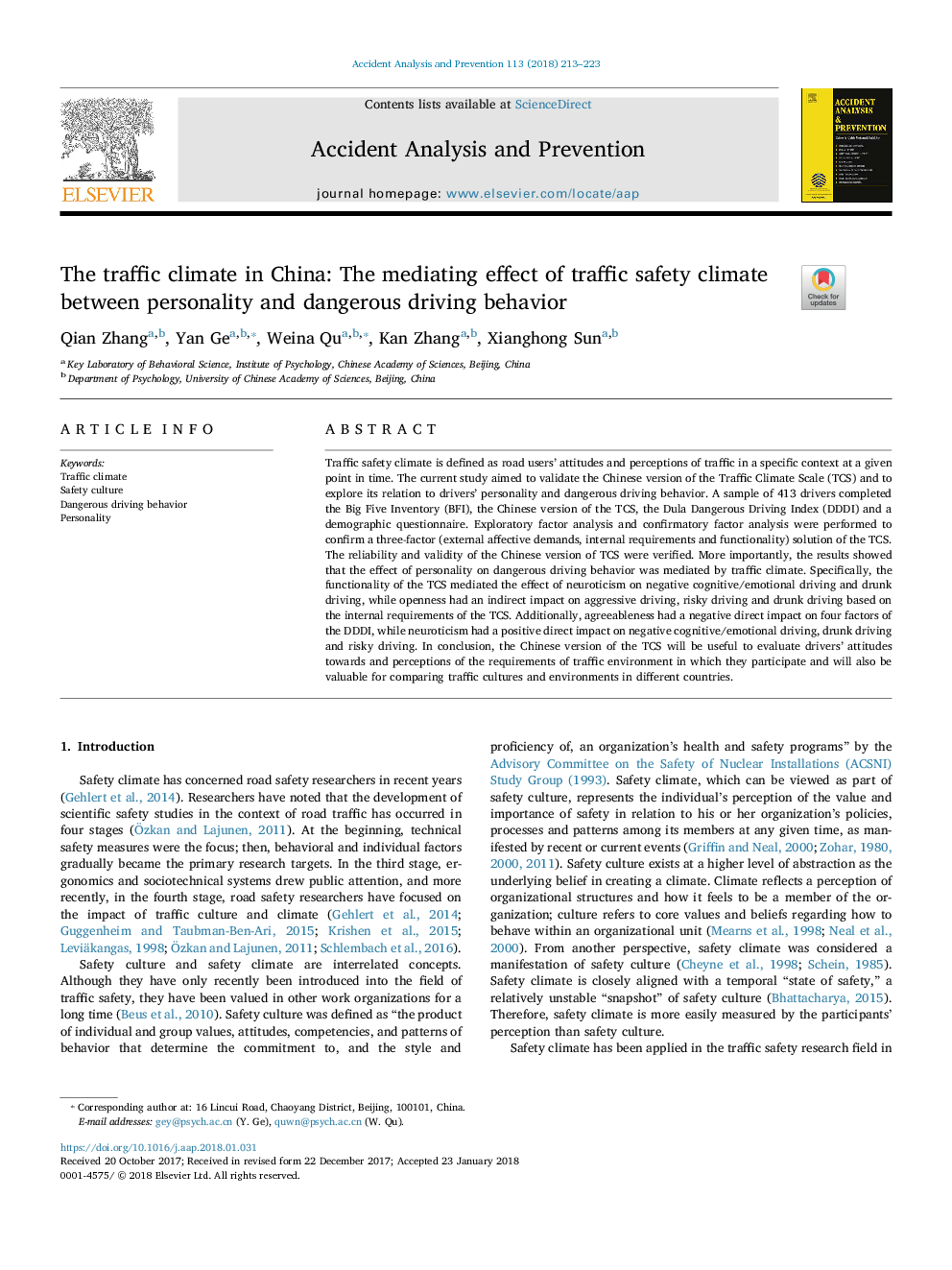ترجمه فارسی عنوان مقاله
محیط ترافیکی در چین: تاثیر میانجی از محیط ایمنی ترافیک بین شخصیت و رفتار رانندگی خطرناک
عنوان انگلیسی
The traffic climate in China: The mediating effect of traffic safety climate between personality and dangerous driving behavior
| کد مقاله | سال انتشار | تعداد صفحات مقاله انگلیسی |
|---|---|---|
| 125597 | 2018 | 11 صفحه PDF |
منبع

Publisher : Elsevier - Science Direct (الزویر - ساینس دایرکت)
Journal : Accident Analysis & Prevention, Volume 113, April 2018, Pages 213-223
ترجمه کلمات کلیدی
آب و هوای ترافیکی، فرهنگ ایمنی، رفتار رانندگی خطرناک، شخصیت،
کلمات کلیدی انگلیسی
Traffic climate; Safety culture; Dangerous driving behavior; Personality;

